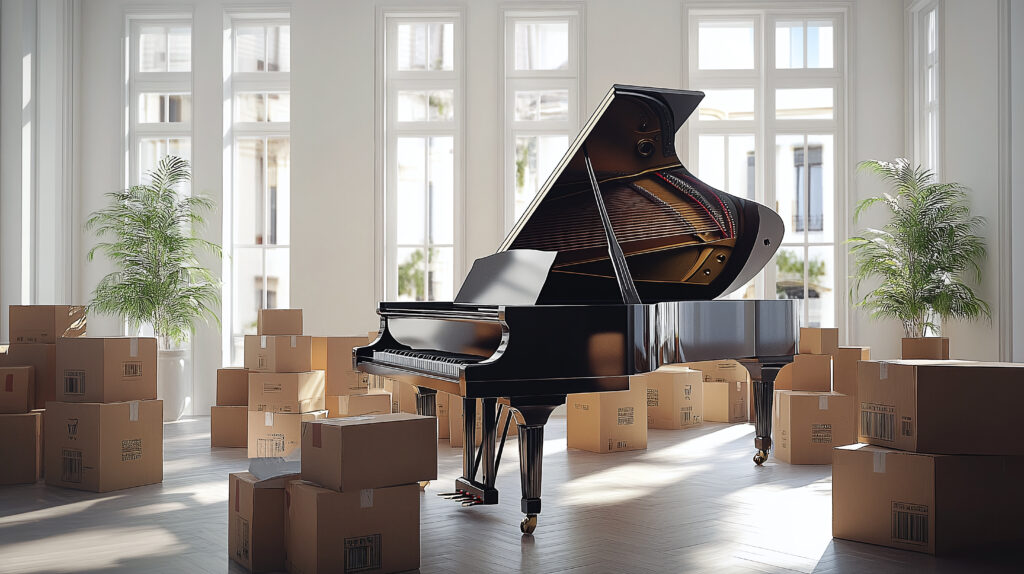
Protecting Your Piano from Colorado’s Climate: Storage Tips and Expert Advice
If you’re a piano owner in Colorado, you already know the region’s dry air and fluctuating temperatures can be tough on delicate instruments. Whether you live in Denver, Colorado Springs, or nearby, storing your piano properly is key to preserving its sound and structural integrity. In this guide, we’ll explore how Colorado’s climate impacts pianos—and what you can do to protect yours.
How Colorado’s Climate Affects Pianos
Colorado’s dry air and wide temperature swings are part of its charm—but they pose real challenges for piano owners. These instruments are made primarily of wood, which reacts to environmental changes. Dry air pulls moisture from the soundboard, potentially causing cracks and warping. Meanwhile, temperature shifts can cause the wood to expand and contract, affecting tuning and overall stability.
Storing your piano in non-climate-controlled areas like garages, attics, or basements increases the risk of damage. Over time, these conditions can shorten your instrument’s lifespan and lead to costly repairs.
The Risks of Dry Conditions
In dry environments, grand and upright pianos are especially vulnerable. The soundboard can shrink, crack, or lose resonance. Glue joints may weaken, compromising the instrument’s structural integrity. Even small humidity shifts can cause noticeable tuning issues. Maintaining a stable humidity level is essential to keeping your piano in good condition.
Temperature Fluctuations and Tuning
Many Colorado piano owners experience tuning issues even after a recent service. Temperature changes are often to blame. As temperatures rise, the soundboard expands, increasing tension on the strings and raising the pitch. When temperatures fall, the soundboard contracts, lowering the pitch. This ongoing cycle can stress internal components and cause tuning instability.
Over time, these fluctuations can damage even well-maintained instruments. That’s why controlled storage is important—especially if you want to reduce the frequency of tuning services.
Key Features to Look for in Piano Storage
To protect your piano in Colorado’s climate, choose a storage facility with these key features:
- Climate control: A steady temperature and humidity level (ideally 40-50% humidity) helps preserve wood, strings, and glue joints.
- Security: Look for facilities with controlled access, surveillance, and insurance options.
- Clean, pest-free environment: Dust, pests, and moisture can all cause damage over time.
Maintaining Ideal Humidity
Consistent humidity is critical. Here are a few tools and tips that can help:
- Use a hygrometer to monitor humidity levels.
- Install a humidifier or dehumidifier in the storage space, depending on conditions.
- Consider a Piano Life Saver System, which offers built-in humidity regulation for your instrument.
These precautions can extend your piano’s life and reduce the need for repairs.
Expert Storage Services in Colorado
If you’re looking for a trusted team to help protect your piano, Mountain Piano Moving Company offers climate-controlled storage options tailored for Colorado’s environment. Our storage solutions include:
- Stable temperature and humidity levels
- Air circulation to prevent mold and dust buildup
- Short-term and long-term plans based on your needs
We also provide careful transportation and handling services to and from the storage site, ensuring your piano remains safe throughout the process.
Final Thoughts
Colorado’s beautiful climate presents unique challenges for piano owners, but with the right storage strategy, you can keep your instrument safe and sound for years to come. Controlled temperature, stable humidity, and proper handling are the keys to piano longevity.
If you have questions about storing your piano—or need help selecting the right environment—Mountain Piano Moving Company is here to help. Contact us anytime to learn more about your options.

